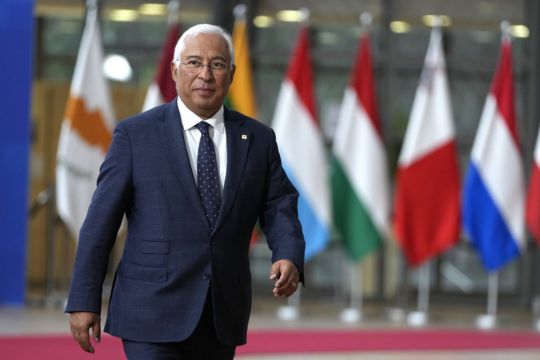Portuguese Prime Minister Antonio Costa has resigned after his government was involved in a widespread corruption inquiry, sending a shockwave through the normally tranquil politics of the European Union member.
The 62-year-old, Portugal’s Socialist leader since 2015, asserted his innocence but said in a nationally televised address that “in these circumstances, obviously, I have presented my resignation to the president of the republic”.
The announcement came hours after police arrested his chief of staff while raiding several public buildings and other properties as part of the investigation.
The state prosecutor’s office said the Supreme Court was examining suspects’ “use of the prime minister’s name and his involvement” when carrying out allegedly illicit activities. It said the minister of infrastructure, Joao Galamba, and the head of the environmental agency were among those named as suspects.
President Marcelo Rebelo de Sousa quickly accepted Mr Costa’s resignation. He is expected to dissolve parliament and call for a new election.
He said in a statement that he is meeting representatives of the political parties represented in the Portuguese parliament on Wednesday, and will speak to the nation after the Council of State gathers on Thursday.
The prime minister teared up while thanking his family for their support.
“I totally trust the justice system,” he said. “I want to say eye to eye to the Portuguese that my conscience is clear of any illicit or censured act.”
He acknowledged that he was not “above the law”.
An investigative judge had issued arrest warrants for Mr Costa’s chief of staff Vitor Escaria, the mayor of the town of Sines, and three other people because they represented a flight risk and to protect evidence, the prosecutor’s office said in a statement.
The judge is investigating alleged malfeasance, corruption of elected officials and influence peddling related to lithium mine concessions near Portugal’s northern border with Spain and plans for a green hydrogen plant and data centre in Sines on the south coast.
The police raids included the premises of the ministry of the environment, the ministry of infrastructure, Sines town council, private homes and offices.
Portugal’s lithium mines and green hydrogen projects are part of the continent’s green initiative being pushed, and heavily funded, by the European Union.
Mr Costa has been a major backer of the projects and an ally of Spain’s acting Prime Minister Pedro Sanchez.
He had looked set to remain in power for several years after his Socialists scored a landslide victory in elections last year, but in December 2022, his infrastructure and housing minister was forced to quit amid an outcry over a 500,000-euro (£434,000) compensation payment made to a board member of state-owned flag carrier TAP Air Portugal.
The junior minister for infrastructure also stepped down.
Ten senior government officials have left their jobs since Mr Costa’s party won the 2022 ballot.
Mr Costa said he had no prior indication he was being scrutinised by legal authorities.
“This is a phase of my life that comes to an end,” he said.







